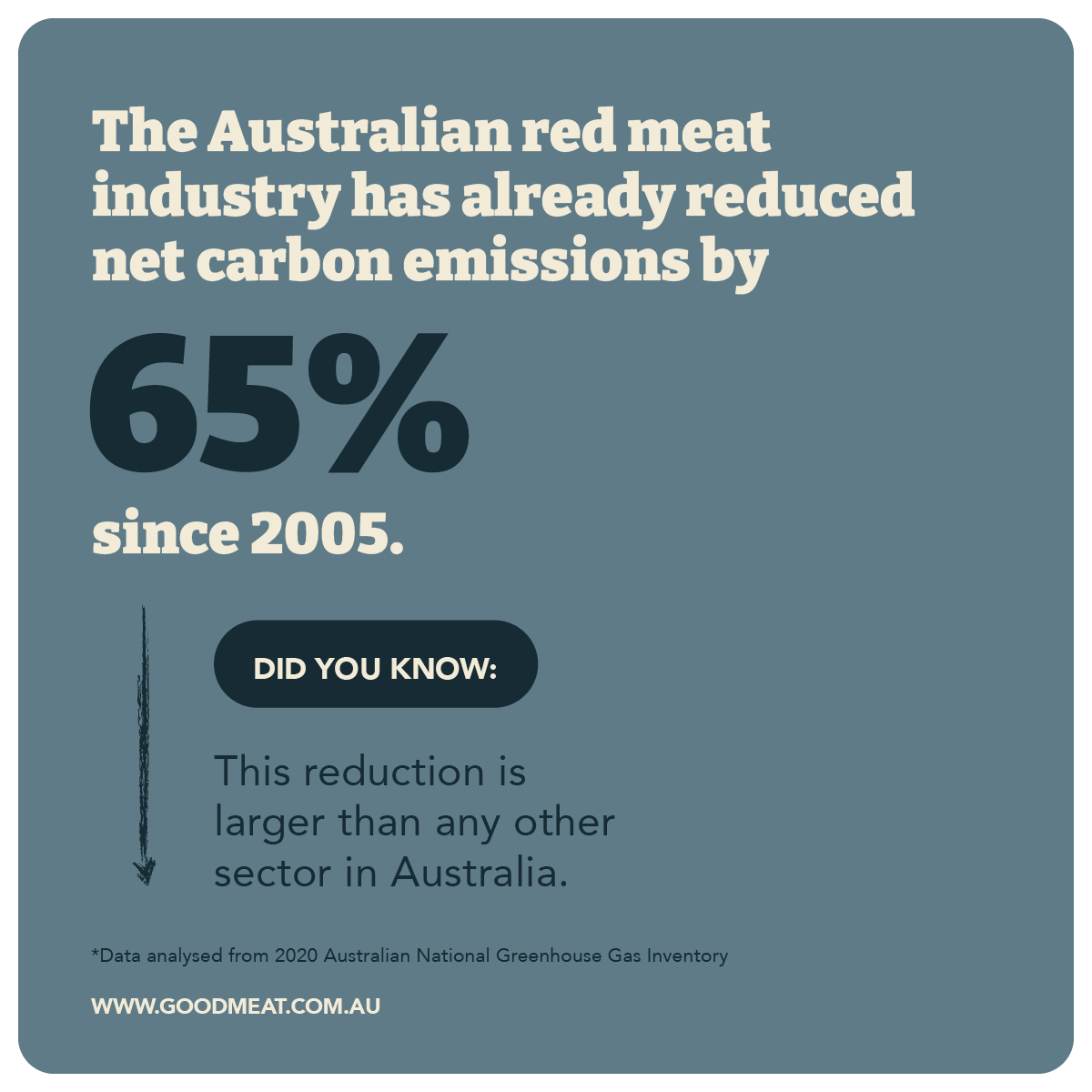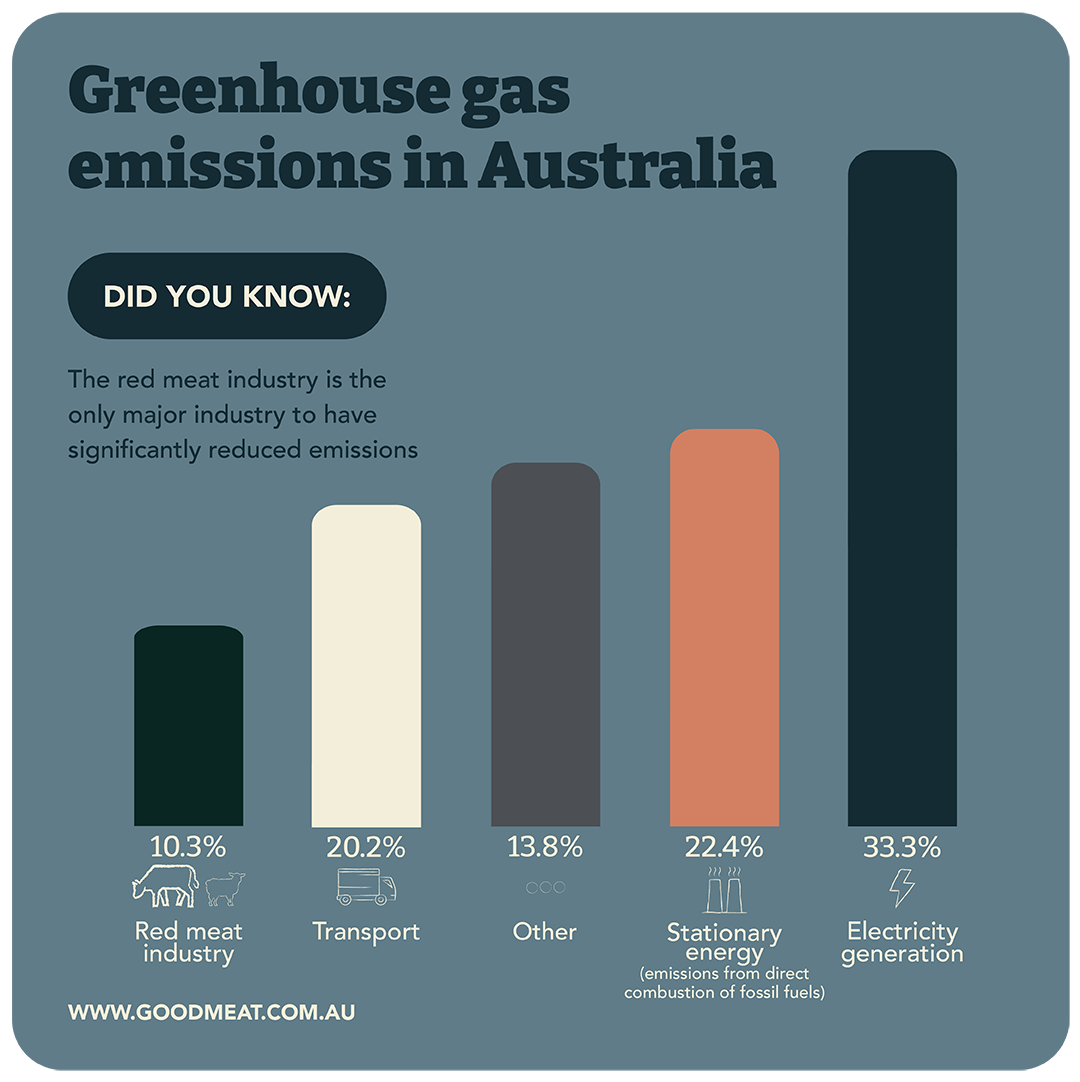
With many consumers interested in knowing more about the environmental sustainability of the food they eat, here are some fast facts to help you answer any questions about Australian red meat.
The Australian red meat and livestock industry's goal is to be carbon neutral by 2030 (CN30), ahead of most other industries in Australia and around the world.
MLA’s latest research on this, identified consumers don’t understand CN30 but at the same time, believe when they know more about the industry, the more trust they have for it.
With this in mind, it’s important for butchers to have some fast facts on hand to answer any questions customers may have about CN30 and the environmental sustainability of the red meat industry.
Fast facts:
CN30 means the Australian red meat and livestock industry will make no net release of greenhouse gas (GHG) emissions into the atmosphere by 2030.
CN30 can be achieved by beef and lamb producers improving productivity, increasing soil carbon and reducing emissions.
The Australian beef industry has more than halved its net GHG emissions since 2005. This reduction in GHG emissions is larger than any other sector in Australia.
The Australian red meat industry contributes only 10.3% of national GHG emissions – well behind sectors like energy and transport. The largest emitters are electricity generation (33.3%), stationary energy (22.4%) and transport (20.2%).



